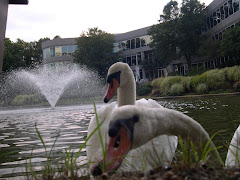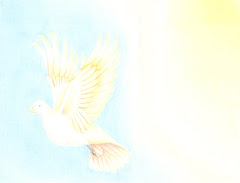10:12 Sow righteousness for yourselves,
reap unfailing love.
Break up the unplowed ground for yourselves,
for it is time to seek the LORD,
until he comes and showers deliverance on you.
10:13 But you have plowed wickedness;
you have reaped injustice;
you have eaten the fruit of deception.
Because you have depended on your chariots;
you have relied on your many warriors.
Bethel Will Be Destroyed Like Beth Arbel
10:14 The roar of battle will rise against your people;
all your fortresses will be devastated,
just as Shalman devastated Beth Arbel on the day of battle,
when mothers were dashed to the ground with their children.
10:15 So will it happen to you, O Bethel,
Within these four verses, Hosea is telling Israel he knows of their idolatrous involvements. The Israelites have been pretending to worship God. Hosea tells them that God is aware of their pride. In fact, Israel did not even credit God with the success of their armies.
Hosea tells them they need to soften their hearts (break up your unplowed ground) and “reap the fruit of unfailing love”.
In preparing the soil of a garden, you would til it so it becomes loose. This allows any compost containing vital nutrients from leaves, stalks, and weeds from last year to be tilled under for the use of the anticipated crop.
The analogy is to demonstrate the blessing that God will give us if we apply careful cultivation to our spiritual self.



















10 comments:
Hi Jim,
I am working on the book of Hosea right now. Did you know that?
There is promise in this first verse: Sow righteousness; reap mercy, or unfailing love. OR Do the correct activity; think the correct thought inside God's Kingdom (not according to the world's standards), and the result will be forgiveness and love that is everlasting.
The next verse, and the verses that follow talk about being outside God's Kingdom. Why do people want this? The consequences are devastating. There is very little, and fragile security.
Your writing is short and to the point. Fantastic!
Love,
Vicki
This sounds reasonable Jim.
I found this:
ccel
Quote:
'He exhorts here the Israelites to repentance; though it seems not a simple and bare exhortation, but rather a protestation; as though the Lord had said, that he had hitherto laboured in vain as to the people of Israel, because they had ever continued obstinate. For it immediately follows... The reason is here found, why I thought that the Prophet did not simply exhort the people, but rather charged them with obduracy for not growing better, though often admonished. He then relates how much God had previously done to restore the people to a sound mind; for it had been his constant teaching, Sow for yourselves righteousness, reap, in proportion, kindness, or according to the proportion of kindness; plough a ploughing for yourselves; it is the time to seek the Lord Though then the people heard these words daily, and had their ears almost stunned by them, they did not yet change for the better, nor made themselves pliable; nay, as it were with a fixed purpose, they ploughed, he says, ungodliness, they reaped iniquity; they therefore did eat the fruit of falsehood, for they sustained just punishments, or satiated themselves with falsehood and treachery. We now apprehend the meaning of the Prophet: I will come to particulars.'
Nice encouraging post, Jim.
The book of Hosea is one of the most powerful books that show us God's love. The typology in Hosea is incredibly strong as we witness God's faithfulness and love (Hosea) and Israel's unfaithfulness and Idolatry (Gomer). God calls Hosea to teach Israel how it is that God has and will relate to her (as His unfaithful "wife") by having Israel witness how Hosea interacts with his unfaithful wife. God will give her up for a season for running after other god's; but in the end He will remain faithful and restore her to Himself.
In Christ (the New Covenant), God's people (from every tribe, tongue and nation) are recovered and will then truly know God (Jer. 31-33; Isa. 49; Heb. 8;1-10:18; etc) and will be forever united to Him in love (Rom. 8:1-39, etc.). God remains faithful in the Person and Work of Christ even as we are found many times even now to be unfaithful. He has secured our future with Him in His Son so that we, as the Bride of Christ, will be presented to Him spotless and pure.
The Christology in Hosea is unmistakeable. It is a very powerful and encouraging book. Thanks for the reminder to consider this often neglected book.
GGM
We do, indeed, reap what we sow. How often are we tempted to think we can "do it alone, for ourselves...?" Your post is a reminder that we are called to always seek the Lord, praise the Lord and live for the Lord.
Your post also makes me think about the Parable of the Sower...
This must be your second time through the Bible this year. I was not aware. But, I just chose to read here in Hosea as a devotional time.
Thanks Russ,
My next post will be about the Star appearing over Bethlehem.
Thanks GGM,
As you are aware, there is a lot one could write about in Hosea. There is a lot one could write about in the four verses I mentioned.
I, however to be short and to the point as I have not had much time lately.
Jim
Thanks Gigi,
We people get arrogant and forget what God has done for us. This Christmas and this past Thanks giving, I have and will continue to look to the Lord and honor Him as I demonstrate my love for the human family.
Jim
Hi Jim,
Very good and to the point. To recieve from the Lord we cannot have a heart of stone. This reminded me of the verse that the Lord says "I will remove from you your heart of stone and give you a heart of flesh"
T :)
Hi T.,
Thanks for the comment. You are right. There is a lot of symbolism in the book of Hosea. The heart of stone is an effective analogy to follow up here with.
Gigi was reminded of the parable of the sower.
Jim
Post a Comment